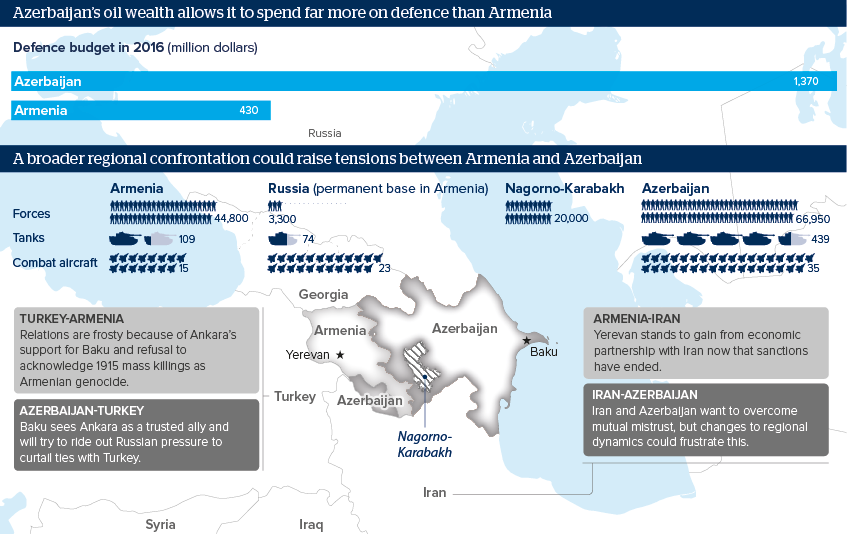South Caucasus entangled in Russian-Turkish standoff
Armenia and Azerbaijan, locked in frozen conflict, now find themselves part of a fast-evolving wider confrontation

Source: IISS; Panarmenian.net, APA news agency; Russia Today
Outlook
The Russian-Turkish confrontation over Syria is affecting the South Caucasus, a heavily armed and tense region where Armenia is allied with Moscow and Azerbaijan is aligned with Ankara despite its defence and other ties with Russia.
This month's deployment of more fighter jets at Russia's airbase in Armenia, plus details of a 200-million-dollar loan for Yerevan to buy more weapons, underscores the country's emerging role as a heavily militarised outpost near Turkey's border. Armenia's already poor relationship with Turkey will worsen as Ankara begins to view it as Moscow's proxy.
Tensions in the wider region increase the risk of conflict over Nagorno-Karabakh, an unrecognised state governed by an Armenian administration since war with Azerbaijan in the early 1990s. Peace talks continue and a ceasefire holds despite frequent gunfire.
Impacts
- An accidental or deliberate escalation of Azerbaijani-Armenian clashes will be difficult for external states to contain.
- Falling oil income will reduce Azerbaijan's arms purchases and its ability to use military strength as leverage in Karabakh talks.
- In its role as Moscow's main security partner, Yerevan will find it harder to pursue separate foreign and trade policies.
See also
- Azerbaijan-Armenia rhetoric more risky than gunfire - Jul 24, 2020
- Armenia-Azerbaijan arms race undercuts peace prospects - Aug 11, 2017
- Defence pact increases Armenian dependence on Russia - Nov 30, 2016
- Russia will seek to exploit common interests with Iran - May 13, 2016
- Russia and Turkey will avoid igniting Karabakh war - Apr 13, 2016
- Turks will treat carefully Russian build-up in Armenia - Jan 20, 2016
- More graphic analysis